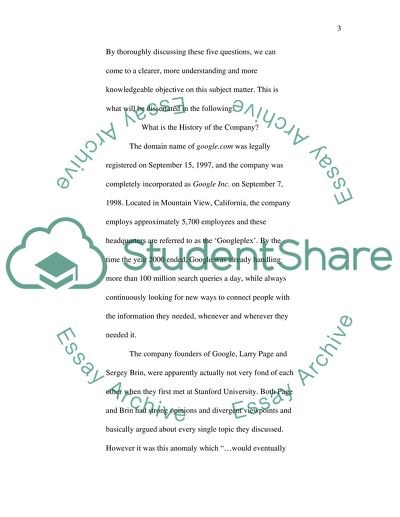Cite this document
(“History of Google Essay Example | Topics and Well Written Essays - 1500 words”, n.d.)
History of Google Essay Example | Topics and Well Written Essays - 1500 words. Retrieved from https://studentshare.org/information-technology/1533382-googles-history
History of Google Essay Example | Topics and Well Written Essays - 1500 words. Retrieved from https://studentshare.org/information-technology/1533382-googles-history
(History of Google Essay Example | Topics and Well Written Essays - 1500 Words)
History of Google Essay Example | Topics and Well Written Essays - 1500 Words. https://studentshare.org/information-technology/1533382-googles-history.
History of Google Essay Example | Topics and Well Written Essays - 1500 Words. https://studentshare.org/information-technology/1533382-googles-history.
“History of Google Essay Example | Topics and Well Written Essays - 1500 Words”, n.d. https://studentshare.org/information-technology/1533382-googles-history.


